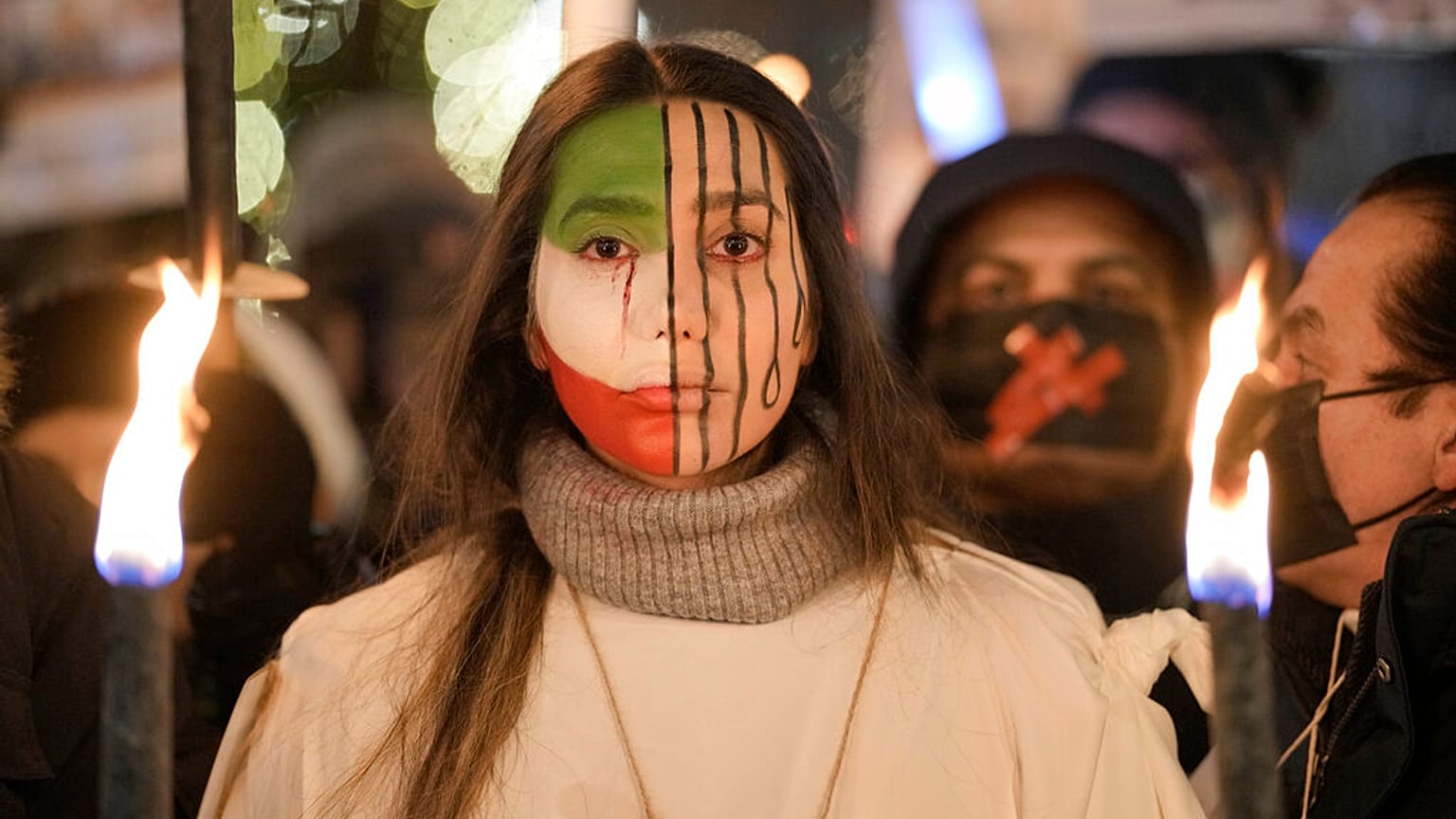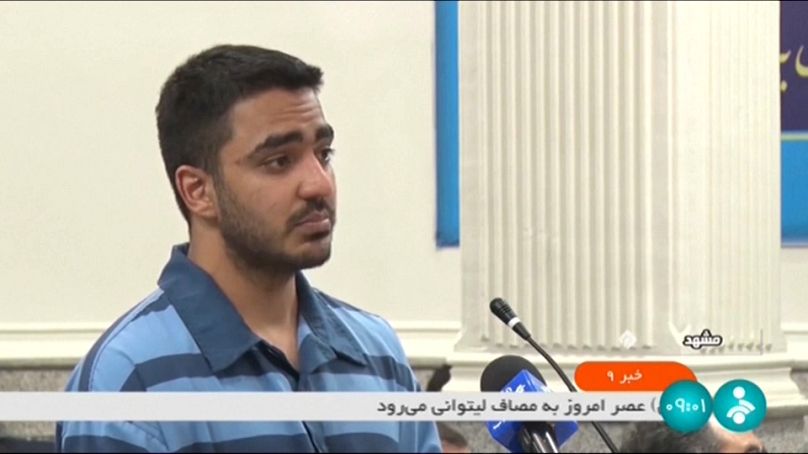Majid Reza Rahnavard was hanged from a construction crane in the northern city of Mashad on Monday.
 ADVERTISEMENT
ADVERTISEMENT
The execution of a second Iranian prisoner is “a blatant attempt at intimidation” by Iran's government, Germany's Foreign Minister said on Monday
“A system that treats its people in this way cannot expect to continue to have halfway normal relations with the European Union”, said Annalena Baerbock.
Her comments came ahead of an EU summit where the bloc sanctioned Iran, blacklisting senior figures within the regime, military and the country's state TV and radio.
Majidreza Rahnavard was hanged from a construction crane in the northern Iranian city of Mashad on Monday after being accused of murdering two security officers and wounding four others during nationwide protests.
Rahnavard was convicted of 'moharebeh' (waging war against God), a charge used since the 1979 Islamic Revolution carrying the death penalty.
Iranians have protested since September in what has become the largest challenge to the Islamic government in recent history.
Unrest was sparked by the death of 22-year-old Mahsa Amini, after she was arrested by the country's morality police for allegedly not wearing her hijab correctly.
"The Iranian authorities are continuing to crack down on protests and are executing protesters," said Top EU diplomat Josep Borrell. "We are targeting those involved in this crackdown."
He had previously said the bloc will approve “a very, very tough package of sanctions” against Iran over its brutal crackdown on protesters and for supplying drones to Russia.
In November, Iran admitted to supplying Russia with military drones that have been used to cripple Ukraine's energy infrastructure, though Moscow denies using Iranian-made equipment.
The French Foreign Ministry also denounced the Iranian regime's human rights violations.
"France condemns in the strongest terms the public execution today of an Iranian sentenced to death following his participation in the demonstrations."
"Iran must understand that the European Union will strongly condemn these acts and take all possible measures to support young women, peaceful protesters and certainly the rejection of the death penalty."
Human rights groups have widely denounced the hanging of Majidreza Rahnavard, with the US-based Center for Human Rights in Iran describing it as "state-sponsored murder".
Amnesty International also slammed the Iranian government in an indirect tweet on Monday, which simply read: "Abolish the death penalty. Abolish the death penalty. Abolish the death penalty. Abolish the death penalty."
On 8 December, Iran carried out its first execution linked to recent protests, killing Moshen Shekari, who authorities accused of blocking a street and attacking a member of the security forces with a machete in Tehran.
Iran's security forces have been accused of using excessive violence against demonstrators, reportedly using batons, rubber bullets, and at times firing live ammunition at crowds. Some protestors claim violence is needed in self-defence.
The first execution provoked widespread condemnation on the international stage, with the German Foreign Minister tweeting "The Iranian regime's inhumanity knows no bounds".
The news was also met with disdain in the United States, with State Department spokesman Ned Price warning Tehran that the international community will implement more sanctions.
"As this violent crackdown on peaceful protesters continues, the Iranian regime should know that the world is watching."
"We are committed to supporting the Iranian people and imposing costs on those responsible for the brutal crackdown."
Human Rights Activists in Iran, a group monitoring the protests, have warned that at least a dozen Iranians have already been sentenced to death in closed-door hearings.
Around 18,200 people have been detained by authorities.
According to the Oslo-based group Iran Human Rights, the country is one of the world’s top executioners and has killed over 500 prisoners so far this year - the highest number in five years.















